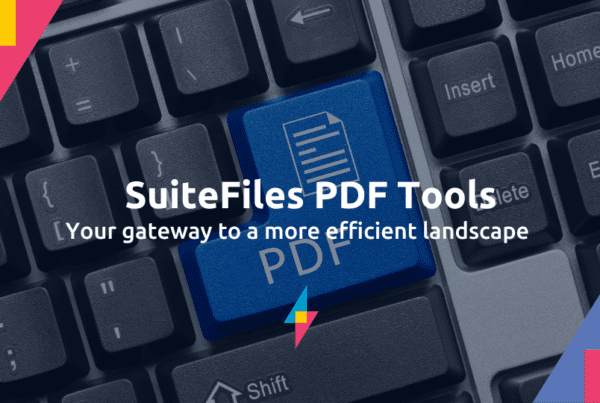
The internet has allowed us access to more information than we’ve ever had before. The trouble is, instead of feeling empowered by it, we can end up overwhelmed. Despite having all this data at our fingertips, it doesn’t make decision-making any easier. In fact, it can have us over-analysing and over-complicating the decision-making process to the point of analysis paralysis – that is, a paralysed state of inaction.
Are you suffering from analysis paralysis?
Think about your everyday behaviour when it comes to decision making. Do you find that you spend a long time over-thinking decisions? Does the fear of making the wrong decision hold you back from taking action, or miss opportunities?
The result of this hypervigilance around decisions has been termed, the ‘paradox of choice’. It means that while more information allows us to better objectively achieve results, it also results in anxiety and indecision.
While dwelling on what colour your new couch should be could potentially cause some frustration for your spouse, it’s in the workplace that analysis paralysis is of bigger concern, where it has been observed to affect both productivity and performance.
Analysis paralysis and performance
In a world where innovation and agility are key to staying ahead, in-decision could be holding your organisation back.
And while the time spent dwelling on decisions is a definite productivity-suck, there are other ways that analysis paralysis could be a serious drain on your resources, and therefore progression:
- Reduced mental performance – Researchers believe that both anxiety and pressure create a feeling of distraction, therefore reduce someone’s ability to focus on tasks at hand or process new information. This is because your ‘working memory’ – the memory system you call on to get something done at the moment you’re doing it, is ‘taken up’ by the repetitive thoughts, self-doubt and analysis of your impending decision.
- Creativity buzz-kill – Without getting too deep into cognitive neuroscience, your analysis paralysis is also having an affect on the effective functioning of your prefrontal cortex. This area of the brain is central to your thinking and executive functioning. It’s also where your creativity is housed. The more pressure that over-thinking and indecision puts on this area, the less capacity it has for creativity.
- Defeat… – Decision fatigue comes from overthinking to the point that your willpower has wilted, and taken you ability to make high-quality, well-considered decisions with it.
- … and deflation – It’s fair to say that indecision and analysis anxiety are going to to have an effect on overall well-being, optimism and self-esteem. Regret, fear, failure and dissatisfaction are all feelings that can hang around, even once a decision has been reached.
Break the cycle
If you’re suffering the effects of analysis paralysis or witnessing its impact in your organisation, there are changes you can make.
Here are 5 steps to shifting the collective mindset around decisions and taking action.
1. Not all decisions are created equal
Successful decision makers structure their day so that they tackle their most important tasks in the morning when their willpower supply tank is at its fullest. If you’re battling a decision later in the day, leave it, and return with a fresher perspective the following morning. It’s also beneficial to reduce the number of decisions you have to make, giving you more cognitive space for those choices with greater consequences. Many people have seen success by eliminating choice – such as wearing the same outfit every day, or creating daily routines so as to conserve their willpower for important decisions.
2. Reduce the noise
Project research can land you in the internet’s information black hole, so start by setting your intention about what your research objective is. Reading with a specific goal will allow you to focus on finding this information, without getting sidetracked or confused. Also aim to limit the resource volume, for example, the first page of search results.
3. Set timeframes
Work to a deadline, either alone or collectively. One way to go about this from an organisational perspective is the Design Sprint. The Design Sprint was a concept created by Jake Knapp out of Google Ventures – it’s essentially a facilitated 5-day workshop for answering critical business decisions through design, prototyping, and testing. It has proven successful in cutting out the endless debate cycle common of a design-by-committee approach and is particularly effective for developing new products, features or services, or defining strategies.
4. Talk it out
Reaching out to someone, whether it’s just to brain dump or to get their opinion, can lead to a decision that we feel more comfortable about, simply because we’ve received validation from somewhere else. Ask a colleague or supervisor for a scheduled time to go over the issue. It will force you to present your deliberations in a structured way and may help to validate your choice in the process. As an organisation, focus on creating a culture where a collaborative approach is encouraged.
5. An iterative approach
This approach suggests that rather than seeing a decision as final, view each decision as an experiment to be tested. It allows you the confidence to make a choice sooner, with the knowledge that you can improve upon it until you achieve the desired outcome. In the software world, you’ll often hear talk of a minimum viable product (MVP). Releasing an imperfect version of a product allows a business to use data and user feedback to iterate, amend, and incorporate learnings.
If you find yourself spiraling down the indecision vortex, take a step back, try one of the strategies above, and see how it affects your confidence around decision making.
Found this helpful? For more SuiteFiles news and blog posts, sign up to our monthly newsletter to have our tips delivered straight to your inbox.



